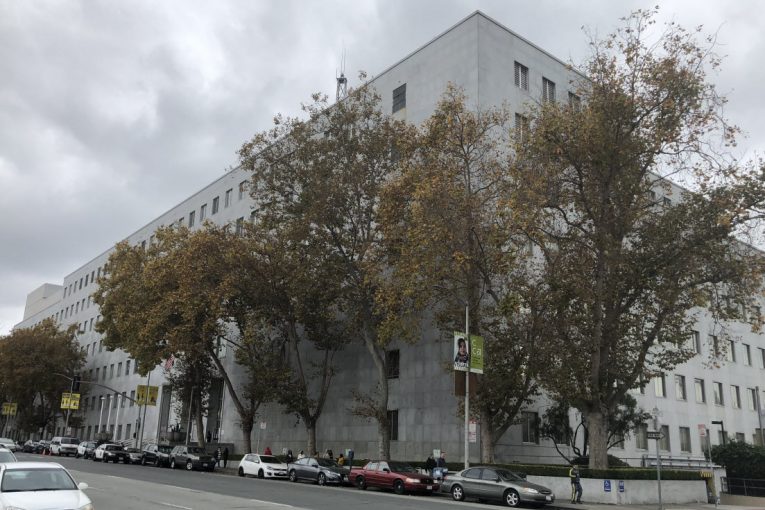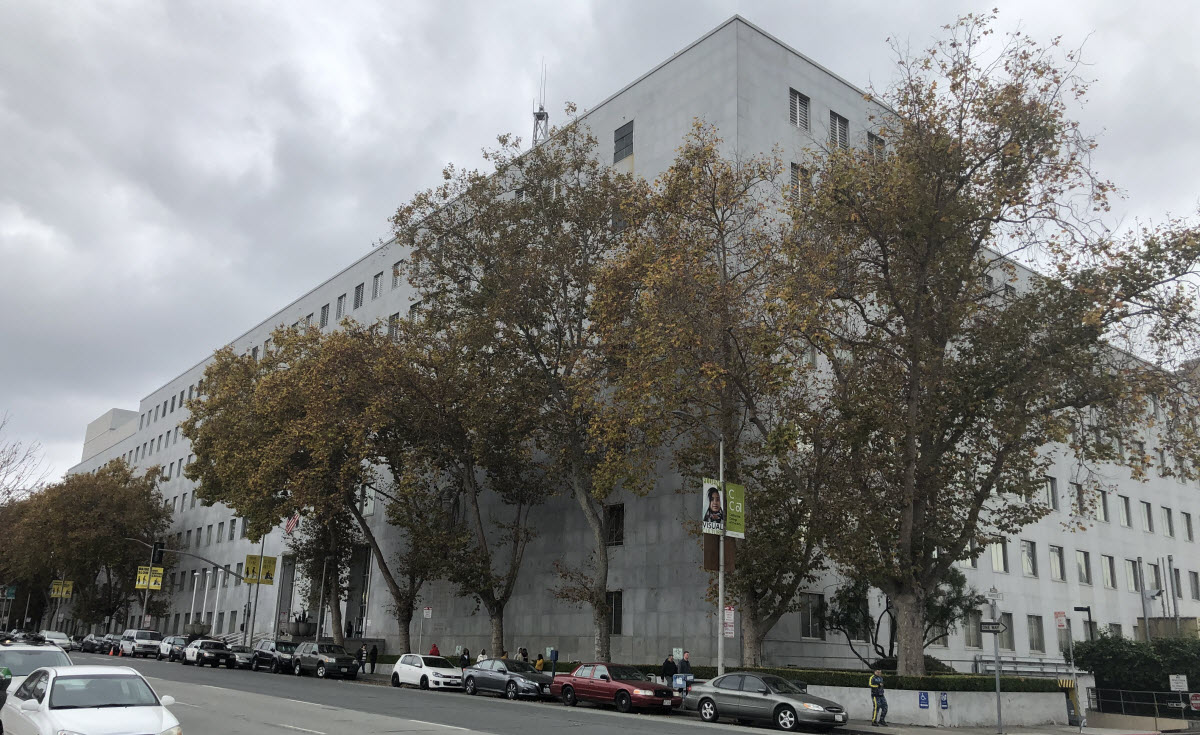

By Danielle Silva
The defense pointed to the arresting officer’s dash camera footage in a driving-under-the-influence trial, arguing the defendant was “stopped for driving short of perfection.”
On Sept. 21, 2019, at nearly 4 a.m. Oscar Lopez Rizo was pulled over by California Highway Patrol officers near the edge of the Bay Bridge. One officer approached Mr. Rizo and conducted several field sobriety tests and a breathalyzer, before arresting him for allegedly driving under the influence. Mr. Rizo consented to a further blood sample, which allegedly revealed elevated levels of Tetrahydrocannabinol, also known as THC and a psychoactive constituent of cannabis, in his bloodstream.
The prosecution began her opening statements outlining the above. She noted that CHP Officer Justin Blanken had been the arresting officer that night and had conducted the field sobriety tests and a breathalyzer test on the defendant. Following the tests, Officer Blanken arrested Mr. Rizo and brought him to the station where three consensual blood samples were taken from him. All the blood samples resulted in a blood alcohol content (BAC) of over 0.12 with elevated levels of THC.
The defense argued differently. He stated that the defendant was not driving impaired but was “stopped for driving short of perfection.” The defense then presented to the jury the dash camera footage from the officer’s vehicle. The video showed the defendant complying with police orders when told to pull over. The defense also claimed that there was no other evidence of impaired driving as some tests used were not scientifically validated, and the scientifically validated tests needed to be applied correctly. He also noted the assistant district attorney’s expert would also testify that alcohol which isn’t consumed will not impair a person.
In regard to the THC impairment charge, the defense argued there was no link between THC and impairment. Additionally, Officer Blanken didn’t suspect the THC levels during the entire encounter.
Officer Blanken testified on the stand first. He noted that he had been driving with fellow CHP Officer Escobar on Sept. 21, 2019. They had been driving eastbound on the Bay Bridge when they  noticed a car pass by them in the leftmost lane.
noticed a car pass by them in the leftmost lane.
The officers’ vehicle followed after the car, trying to match the speed to see how fast the driver was going as they were unable to use radar on the crowded road. Their car allegedly reached 81 miles per hour, 30 miles over the Bay Bridge’s speed limit of 50 miles per hour.
The vehicle continued to change lanes until settling in the fourth lane from the left. Officer Blanken testified he saw the defendant sway in the lane three times, noting that two of the times the car touched the rightmost broken white line during the dash camera footage.
The officers began to initiate a traffic stop and the vehicle in front of them began immediately to comply before being instructed by the officers to exit the freeway and then park on the shoulder. Officer Blanken noted no difficulty in the defendant parking.
Around 3:50 a.m., Officer Blanken parked behind the vehicle and made contact with the driver, Mr. Rizo, at the driver’s side window. Officer Escobar allegedly moved to the passenger side window.
At the driver’s side window, Officer Blanken allegedly smelled alcohol and noted the defendant’s red eyes, which he considered signs of impairment. He asked the defendant if he had had anything to drink that night, which the defendant confirmed. Officer Blanken then conducted an abbreviated horizontal gaze nystagmus test, checking to see if the defendant’s eyes from the driver’s seat could smoothly track his finger, which did not appear to be the case.
The officer instructed Mr. Rizo to exit the vehicle and perform several field sobriety tests, including a proper horizontal gaze nystagmus test to check the defendant’s eye movement, a one-legged raise test and a modified Romberg balance test to check if the defendant was swaying or exhibited other signs of impairment. Officer Blanken noticed the defendant swaying during the tests and unable to keep a steady gaze.
Officer Blanken also noted in his report that he did not note things that would be expected at baseline. For instance, if an individual was not hopping during the one-legged raise test, the officer was not to write down that the individual did not hop. Similarly, the officer did notice the defendant’s eyes swaying while still. This eye swaying while remaining still is considered resting nystagmus, which could be a sign of physical or mental difficulty.
The defendant was then instructed to take a preliminary alcohol screening test, also known as a PAS test. After waiting 15 minutes where the defendant did not eat or drink anything and did not show any signs of vomiting or belching, he performed two PAS tests. The first reading came out to a BAC of 0.129. The second reading came out at 0.124.
Officer Blanken arrested Mr. Rizo and instructed the defendant that he could take a blood test or a breathalyzer test for the results. If he chose not to take a test, they would have to file a search warrant. Mr. Rizo consented to a blood test. The officers took Mr. Rizo to the CHP station where a blood technician came and took three vials of the defendant’s blood.
The defense noted Officer Blanken did not request a blood test for driving under the influence of drugs which the witness agreed to. The officers also did not perform the field sobriety tests clearly in view of the dash camera, stating that doing so would place them between the two cars and would not be considered safe.
CHP Officer Anthony Zill testified next. He testified as an expert to the maintenance and upkeep of PAS devices, being the training coordinator and preliminary PAS coordinator.
Officer Zill testified that on Sept. 17, 2019, he had tested the PAS device used in this case for accuracy using pre-packaged and certified testing substances. He stated the PAS device had been within the acceptable margin of error (scoring a 0.095 BAC score and a 0.093 BAC score for a sample with the BAC of 0.1) and was considered in working condition. When he tested the device again on Sept. 24, 2019, the device read a BAC of 0.95 and then 0.94 for a sample with a BAC of 0.1.
While he testified that the device must have been working accurately and adequately, he stated that he could not testify whether the officer had administered the test appropriately.
The prosecution also questioned Officer Zill on the dash cam system, known as the Mobile Video and Audio Recording system. While she had Officer Blanken testify on this before, Officer Zill testified that officers should not have their behavior altered so that their actions can be caught by the MVAR system.
The trial is set to resume on Monday, December 2.




